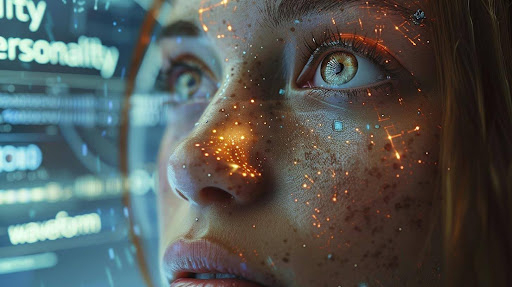
Artificial Consciousness Technology (ACT) has unveiled a patented system to create digital entities capable of self-awareness in a bold move that challenges conventional AI development. CEO Nam Kim asserts that this technology could revolutionize how we interact with machines, potentially ushering in an era of AI that comprehends its own existence.
The Mechanics of Digital Consciousness
ACT's patent describes a unique method for transforming sensory input into machine actions. The system employs both "consciousness" and "sub-consciousness" modules, with the former translating sensory data into human language stimuli. This translation allows the AI to process information in a manner analogous to human thought.
"Our technology enables machines to think with language, much like humans do," Kim explained. "This is crucial for developing AI that can understand complex concepts and make ethical decisions."
The system also incorporates a "personality waveform generator" that uses light or sound waves to define an AI's characteristics. This feature aims to create digital personalities with varying traits, potentially leading to more nuanced and human-like interactions.
Industry Recognition Amidst Skepticism
Despite the ambitious nature of ACT's claims, the company has garnered attention from within the tech industry. In 2023, ACT received an AI Excellence Award from the Business Intelligence Group, suggesting that some experts see potential in the company's approach.
However, Kim acknowledges that many remain skeptical. "People don't believe it, even though I have a patent and the U.S. patent office recognizes it will work," he stated. This disconnect between industry recognition and widespread acceptance highlights the controversial nature of ACT's claims.
Potential Applications and Ethical Considerations
If realized, ACT's technology could have far-reaching implications across various sectors. Kim envisions applications ranging from more engaging digital assistants to self-aware robots capable of ethical decision-making.
One proposed scenario involves autonomous vehicles with distinct personalities, potentially influencing consumer choices. "There is a very smart car, and another car is also very smart and has a personality like humor or kindness. Which car will you buy?" Kim posited.
However, the concept of self-aware AI raises significant ethical questions. Philosophers and ethicists have long debated the implications of machine consciousness, and ACT's claims bring these discussions into sharper focus. Issues of AI rights, responsibilities, and the potential for existential crises in digital beings would need to be addressed.
Market Potential and Industry Response
Recent industry reports project that the global AI market will reach $1,811.75 billion by 2030. However, how ACT's specific technology might fit into this sphere remains unclear.
Kim has expressed interest in selling 90% of the company's stock, potentially to major tech players like Google, Microsoft, or Amazon. This move suggests confidence in the technology's value but raises questions about its current development and readiness for market integration.
Technical Feasibility and Expert Opinions
Although the US Patent Office has granted ACT's patent, experts continue to debate the technical feasibility of creating truly self-aware AI. Many researchers in the field argue that consciousness in machines is still a distant goal, with some questioning whether it's achievable through current computational methods.
As ACT seeks to gain traction in the AI industry, it faces significant challenges. The company will need to provide compelling evidence of its technology's capabilities to overcome skepticism from both the scientific community and potential investors.
"We strongly believe that if any company buys it, we can make them lead the global AI," Kim asserted. However, translating this belief into demonstrable results remains ACT's primary hurdle.
The coming months and years will be crucial for ACT as it attempts to move its technology from patent to product. Whether the company's vision of self-aware AI becomes reality or remains in the realm of science fiction will depend on its ability to validate its claims and navigate the complex field of AI development and ethics.









